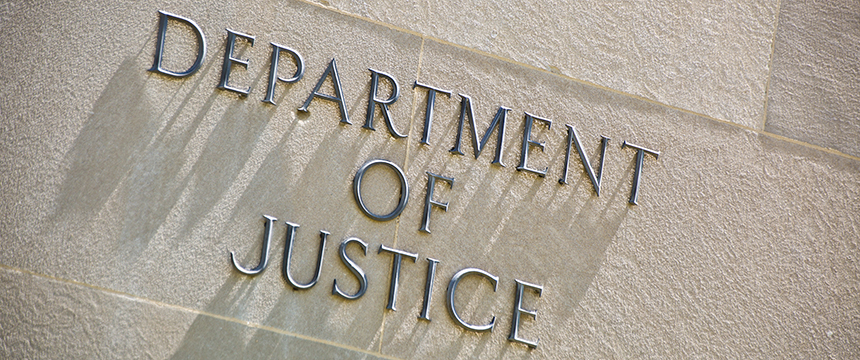New False Claims Act Stats Show Jump in DOJ-Driven Investigations

The Department of Justice’s (DOJ) annual False Claims Act (FCA) press release revealed that it increased self-initiated investigations for the federal fiscal year ending September 30, 2023, by 1.5 times over the prior year. The DOJ also touted its accomplishments in FCA enforcement for the federal fiscal year — a record year for the DOJ. The statistics provided in the DOJ’s February 22, 2024 Press Release reveal the DOJ’s plans for 2024 and beyond.
In 2023, the DOJ obtained 543 settlements and judgments — the highest number in a single year and a marked increase from 2022. The DOJ’s total recoveries of nearly $2.7 billion also increased from 2022, although those recoveries are lower than several prior years.
| 2022 | 2023 | Increase | |
| Settlements and Judgments | 351 | 543 | 54.70% |
| Recoveries | $ 2,241,584,448 | $ 2,689,447,914 | 19.98% |
Looking ahead to 2024, we expect the following trends:
- Further increase of DOJ-initiated investigations
- Active FCA enforcement
- Continued focus on health care, cybersecurity, and private equity
FCA Enforcement Remains Active
There is no sign of slowdown in FCA enforcement. “The False Claims Act remains one of our most important tools for rooting out fraud, ensuring that public funds are spent properly, and safeguarding critical government programs,” the DOJ stated. Beyond its record number of settlements and judgments in 2023, the DOJ pledged even more FCA enforcement activity in 2024. In his remarks, Civil Division Principal Deputy Assistant Attorney General Brian M. Boynton said that, in 2023, the DOJ’s Fraud Section issued a record number (1,504) of Civil Investigative Demands (CIDs), which are a key tool the DOJ uses to obtain documents, interrogatory answers, and testimony in its investigation of FCA cases before bringing or intervening in suits.
Health care fraud continued again to be the leading source of the DOJ’s False Claims Act settlements and judgments in 2023. The DOJ recovered over $1.8 billion related to health care industry matters, including managed care providers, hospitals, pharmacies, laboratories, long-term acute care facilities, and physicians. The DOJ’s recoveries in 2023 were also attributable to its recoveries related to procurement fraud, pandemic relief programs, and cybersecurity requirements in government contracts and grants.
Record Number of DOJ-Initiated Investigations
As forecast before, the DOJ is more committed than ever to building cases itself rather than relying solely on whistleblower (qui tam) suits filed by relators. The DOJ has continued to increase its self-initiated investigations, with a substantial jump from 305 matters in 2022 to 500 new matters in 2023.
| New Matters | |||
| Non-Qui Tam | Qui tam | % of Non-Qui Tam Matters | |
| 2020 | 264 | 676 | 28% |
| 2021 | 212 | 598 | 26% |
| 2022 | 305 | 658 | 31% |
| 2023 | 500 | 712 | 41% |
This increase in government-initiated matters is an important shift in the DOJ’s tactics. This is not to say that the DOJ is abandoning qui tams — the 712 qui tam initiated cases in 2023 was the third highest ever. But this uptick partially reflects DOJ and partner agency investment in allocating resources to data mining. Use of data analytics — especially on health care claims data — continues to be a leading focus.
The spike in government-led matters also reflects increased sharing of information across federal agencies. The focus on misuse of COVID-19 related funds is one example of this, as interagency task forces shared data to uncover wrongdoing. For example, the DOJ worked with the U.S. Small Business Administration to pursue improper payments under the Paycheck Protection Program (PPP). In 2023, the DOJ resolved approximately 270 False Claims Act matters in connection with the improper use of PPP funds.
Priorities for 2024
Health Care. The health care industry remains the leading focus of False Claims Act enforcement. The DOJ continues to pursue cases alleging false claims in the Medicare Advantage (Part C) program, such as claims involving unsupported diagnoses. The DOJ’s press release called this an area of “critical importance,” as Medicare Advantage is now the largest component of Medicare. The DOJ will also continue to focus on these areas:
- Claims for medically unnecessary services
- Health care providers, pharmaceutical companies, and other entities contributing to the opioid crisis
- Enforcement of the Anti-Kickback Statute
- Claims related to ancillary services, such as laboratories, diagnostic, remote monitoring, and DME companies
Cybersecurity. In his live remarks during the 2024 Federal Bar Association Qui Tam Conference, Boynton started by highlighting the DOJ’s Civil Cyber-Fraud Initiative. The Civil Cyber-Fraud Initiative, which was originally announced in October 2021, uses the False Claims Act to police cybersecurity compliance by government contractors and grantees by holding them accountable when they knowingly violate applicable cybersecurity requirements. Although the DOJ’s Civil Cyber-Fraud Initiative has yielded only a small portion of the DOJ’s False Claims Act cases so far, Boynton pledged that more cases are coming in 2024 and beyond. Companies and contractors that work with the government should not neglect the government’s cyber security requirements.
Private Equity. Private equity funds are also in the DOJ’s crosshairs. Boynton specifically called out private equity funds as an example of a “third-party entity” who may be subject to False Claims Act enforcement. Boynton warned that, even if a private equity fund does not directly submit claims to the government, the fund could still face FCA enforcement if it takes steps to influence or cause the submission of a false claim by entities they control. This focus could lead the DOJ to asserting unchartered theories of liability that are worth monitoring carefully. We expect 2024 to be an active year for False Claims Act enforcement, with the health care industry at the forefront of DOJ-initiated investigations.



